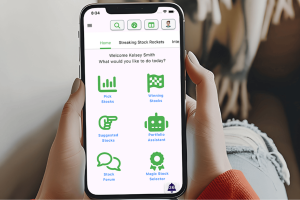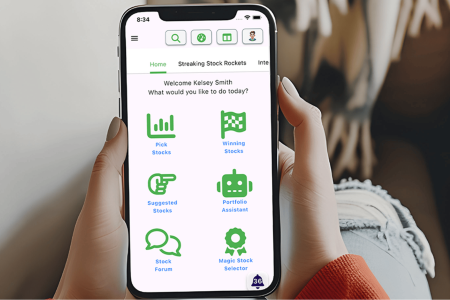Entrepreneur
In today’s competitive business landscape, there seems to be a ready-made solution for everything. While off-the-shelf technology can offer practicality and convenience, relying solely on these tools often leads to a product or service that lacks distinction.
Staying ahead of the competition is about more than simply adopting the latest tech tools — it’s about the ability to adapt quickly and create offerings that truly meet the evolving needs of your clients. Businesses that break free from the constraints of one-size-fits-all solutions are those that embrace innovation, developing unique products and experiences that set them apart from the rest, regardless of what industry they’re in.
Related: The Secrets to Harnessing Innovation and Driving Your Business Forward
Standing out and making your mark
The pace of technological change can feel overwhelming. For businesses, the challenge isn’t just to keep up — it’s to stay ahead. In every industry, the companies that succeed are the ones that can pivot quickly, adopt new tools and adapt their processes to match shifting trends.
As President and CEO of 1031 Crowdfunding, I saw an opportunity to break away from traditional real estate investment platforms and develop something uniquely ours. Like the best innovations, our platform was born out of necessity. There are a lot of stories of clients being misled, misinformed or deceived by other firms. Our proprietary online platform was created with transparency in mind.
We’ve built a backend system that can be easily customized, allowing us to roll out new features or make adjustments in response to real-time feedback and shifting investor demands. Our goal has always been to offer our investors the best possible experience while staying compliant with industry regulations. For businesses that prioritize client satisfaction, being able to pivot quickly with your own unique technology can be a key differentiator when it comes to successful client relations. This can relate to entrepreneurs in any industry when developing products or tools for clients or investors.
This platform isn’t just a rebranded version of what everyone else in the industry is using. It’s fully in-house, which gives us complete control over its features and makes it difficult for competitors to easily replicate. These features give us a direct line to our clients and allow us to offer services that stand out in the marketplace.
Advantages of adaptability
Maintaining control and flexibility over your business’ technological operations is a huge competitive advantage. While other companies are at the mercy of third-party vendors for updates, bug fixes and new features, we can move at our own pace. In an industry like real estate, where regulations and market conditions can change quickly, the ability to adapt is crucial. Our back-end technology moves as fast as we do.
Related: 4 Ways to Adapt Your Business as Your Industry Evolves
Imitation is not a winning strategy
As a business owner, something I see a lot is white-label solutions. Many companies mimic others’ sites and services. If it isn’t broken, why fix it, right? The problem is, if you are offering what everyone else is, why should clients choose you? You can’t expect to outpace competitors if you are all wearing the same shoes.
Off-the-shelf technology may seem like the easy choice. It’s ready-made, tested and widely available. Depending on your business and industry, this might be the right choice for you. However, there can be significant downsides to this approach, particularly in terms of differentiation and innovation.
The most obvious issue is conformity. Many businesses don’t properly utilize the creative and intellectual talents of their team and, in place of their own product development, end up using the same platform as their competitors, which leads to little differentiation beyond branding. The result? A marketplace filled with companies that essentially offer the same product or service, with few distinguishing features.
Another issue is dependency. Companies that rely on widely distributed tech solutions often find themselves limited by the functionality and update cycles of third-party providers. If your business depends on another company’s technology and they suddenly close shop, where does that leave you? While being at the mercy of a vendor’s timeline may be sufficient for some, this can hinder growth and innovation for businesses that wish to stay ahead of their competitors, regardless of industry.
Related: One Size Does Not Fit All: Customer Centricity Is The Key To Differentiate Your Business
Takeaways for entrepreneurs
For entrepreneurs and business owners, creating a unique, in-house product can feel like a daunting task, requiring a significant investment of time, money and resources. But the most successful businesses are those that actively listen to their customers. By understanding and delivering the features your clients want, you not only foster loyalty but also encourage word-of-mouth recommendations that can drive growth. In today’s competitive market, providing what customers truly need is often the difference between staying ahead and falling behind.
Innovation isn’t just an advantage — it’s a necessity. As industries evolve, companies that stay attuned to customer feedback and quickly adapt to meet their needs will secure a lasting competitive edge.
Read the full article here









